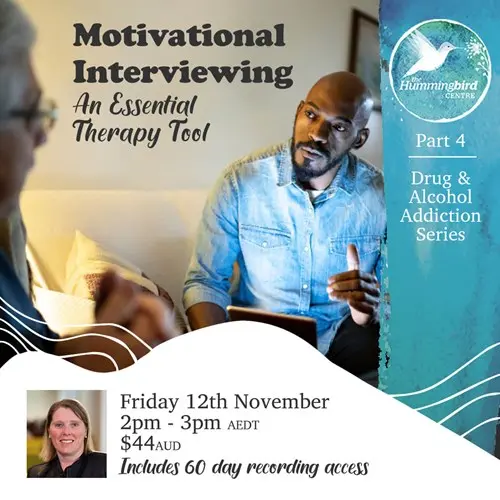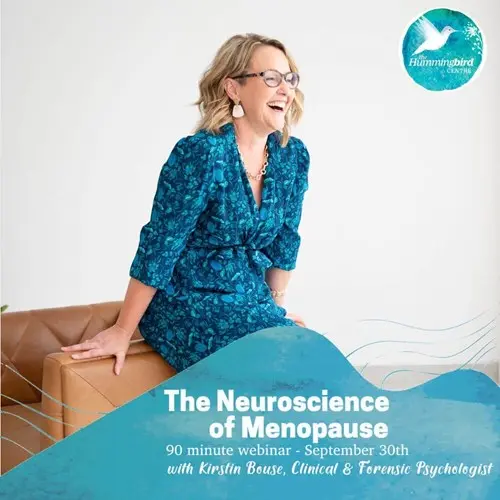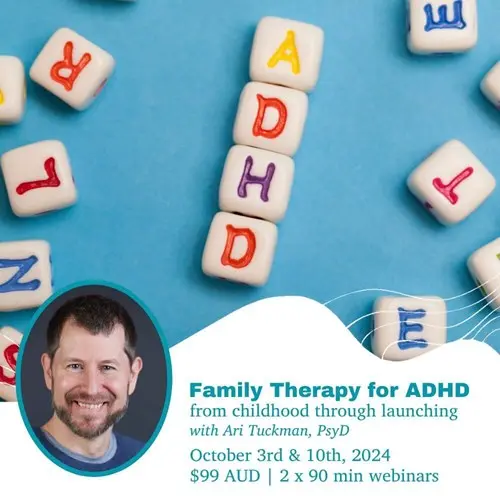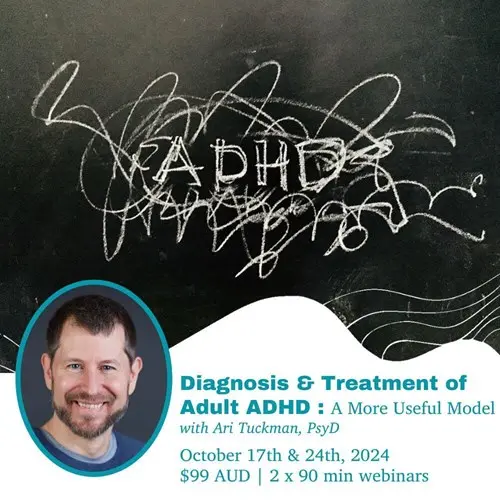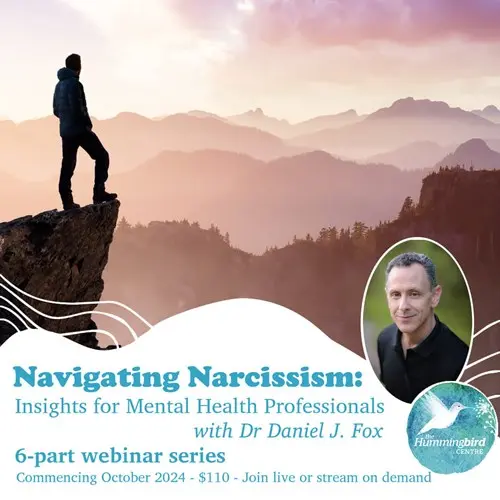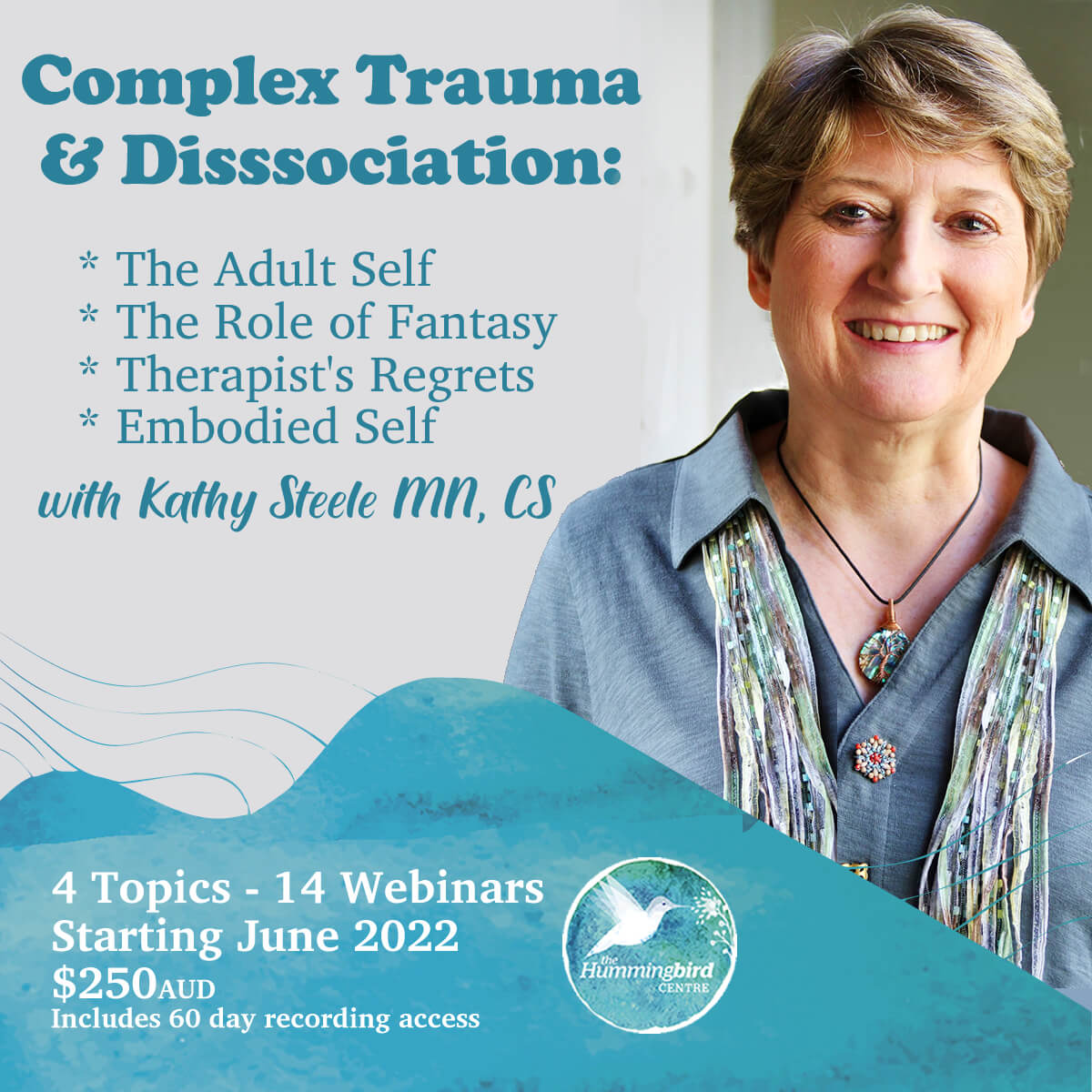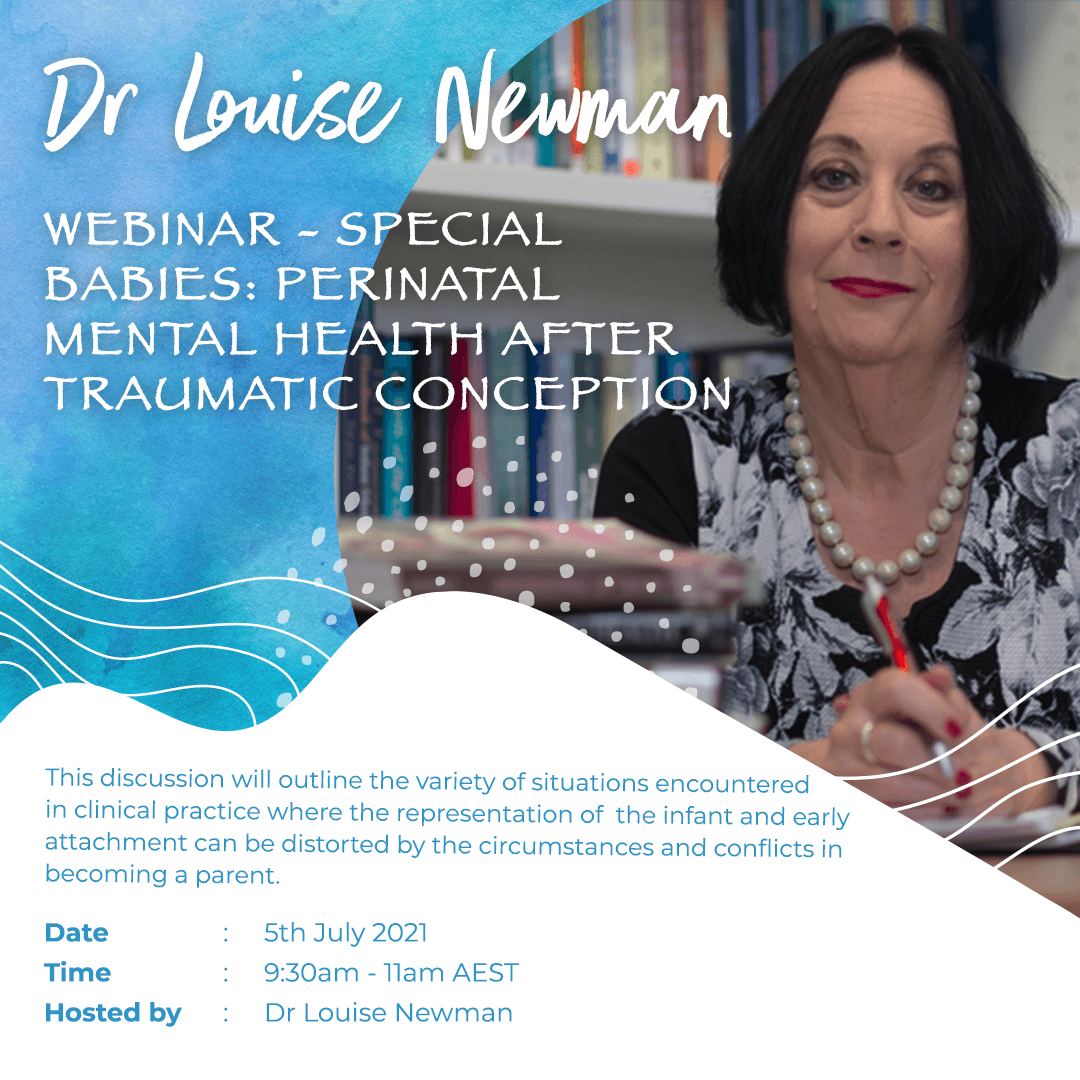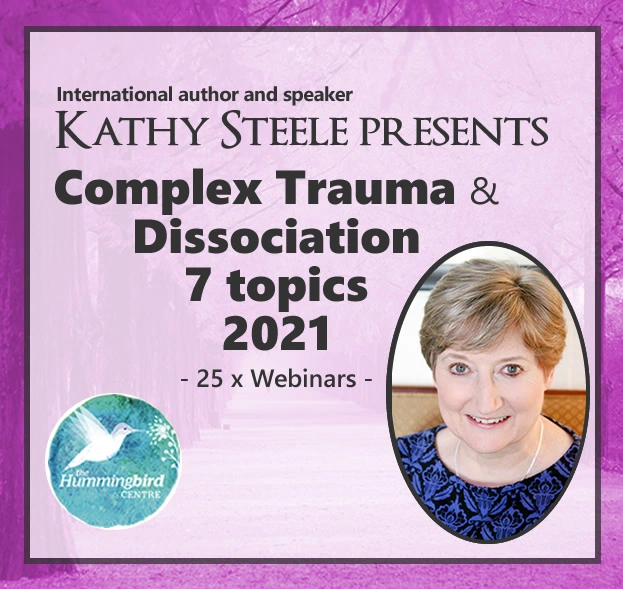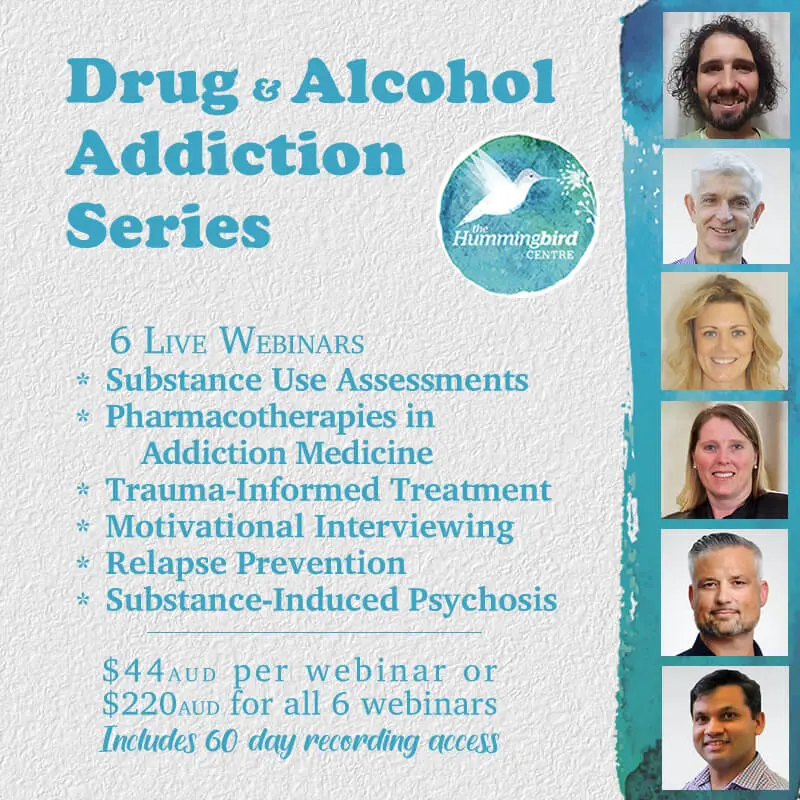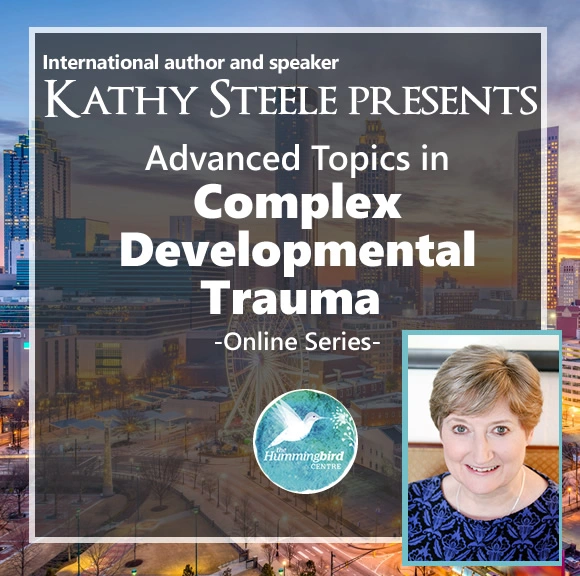An Essential Therapy Tool
Why Learn Motivational Interviewing?
Motivational interviewing is an essential and evidence-based tool that all health professionals need to learn so that they can maximise appointment times and improve treatment outcomes. Motivational interviewing is applied in therapy sessions, brief interventions and is effective in short appointment times, busy wards, pharmacy settings and emergency departments. This therapy approach emphasises the importance of listening to the patient and hearing their reasons for change and working through the barriers to achieving their goals. This webinar aims to provide you with an understanding of motivational interviewing, how it can help you and review the core skills that you can practice in supervision and with your patients. You will learn:
- The principles of motivational interviewing
- OARS: Open ended questions, affirming statements, reflections and summaries
- Sustain talk
- Change talk
Motivational Interviewing (MI) is a therapeutic technique used by therapists to address addiction and substance use disorders in clients by strengthening their motivation and commitment to a particular goal. Client sessions are called “interviews” and focuses on building patient autonomy. MI draws on other various therapeutic styles and theories, such as humanistic therapy, cognitive dissonance theory, therapeutic relationship building, and positive psychology, but does not focus on the underlying cause of an addiction.
Join Dr Kylie Bailey to learn how to switch from solving a client’s problems for them, to encouraging them to solve their own problems. Motivation is not necessarily a personality trait, it is a mindset that can be taught and encouraged. MI helps people overcome their fears or uncertainty, fostering their ambition to get sober and begin their journey to recovery.
About the Presenter
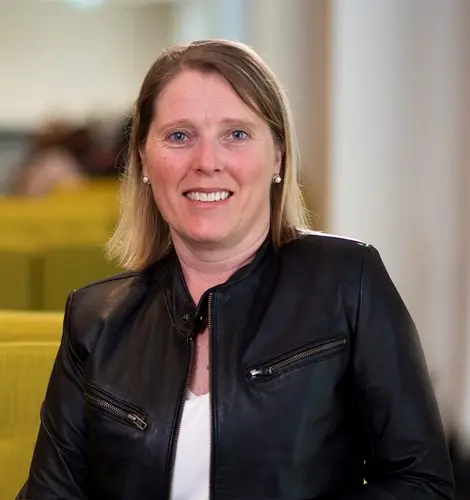
Dr Kylie Bailey is a senior clinical psychologist who has worked in the alcohol and other drug (AOD) and mental health area for over 20 years and is an honorary clinical senior lecturer with the School of Psychology, University of Newcastle. Kylie successfully introduced, built, and managed a new AOD psychology service into a primary health care service that covers regional and rural areas. Kylie is employed at a Mental Health and Substance Use Service as well as a practising clinician who has designed, implemented, and leads an AOD capacity building workforce program for clinical psychologists. Kylie led the Master of Health Science (AOD) program at the University of Newcastle for 18 years, developing and teaching AOD to health professionals and medical students, and supervised master/PhD students. In this role, she received Deputy Vice Chancellor (Academic) merit award for Teaching and Learning Excellence. Kylie has also developed and delivered many AOD training packages (online/workshops, eg, NSW Ministry of Health, the Hunter New England Central Coast PHN), webinars and AOD health promotion strategies. She is a member of five AOD and clinical council/research committees and shapes AOD health education/training in her local area, nationally and internationally (i.e. university). Kylie has over 30 publications ranging from treatment manuals to systematic reviews and evidence checks. Her research interests focus on implementation science for mental health and AOD treatments and service delivery.


